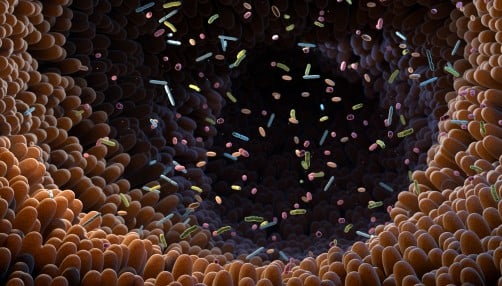UPDATE: New research from UCLA Health reveals that a child’s early gut microbiome could significantly influence their risk of developing anxiety and depression by middle childhood. This urgent study, published in the journal Nature Communications, highlights how specific bacteria types may impact emotional health.
The study indicates that children with a higher presence of bacteria from the Clostridiales order and Lachnospiraceae family at the age of 2 years are at increased risk of experiencing internalizing symptoms—an umbrella term encompassing anxiety and depression—by the age of 7.5 years. This groundbreaking analysis suggests that the composition of gut bacteria interacts with brain connectivity related to emotions, potentially shaping mental health outcomes as children grow.
Dr. Bridget Callaghan, the study’s senior author and associate professor of Psychology at UCLA, stated, “By linking early-life microbiome patterns with brain connectivity and later symptoms of anxiety and depression, our study provides early evidence that gut microbes could help shape mental health during the critical school-age years.”
The research utilized data from the Growing Up in Singapore Towards Healthy Outcomes (GUSTO) study, which tracked health data from children in Singapore. This longitudinal study involved collecting stool samples at age 2, conducting resting state MRI brain scans at age 6, and gathering behavioral surveys from caregivers when the children reached 7.5 years.
Key findings reveal that the gut microbiome’s influence on mental health extends beyond early development stages, focusing instead on school-aged children when issues such as anxiety and depression first emerge. Previous research predominantly centered on infants and toddlers, leaving a gap in understanding the gut-brain connection during these formative years.
The study analyzed data from 55 participants and identified brain connectivity patterns at age 6 associated with later internalizing symptoms. The connection between gut bacteria and mental health aligns with earlier studies linking specific microbe groups to stress responses and depression in adults.
Dr. Callaghan emphasized the necessity for future research to determine whether these associations are causal. “We need to figure out what species within these larger groups are driving the findings,” she noted. “Once we have that information, there are relatively straightforward ways to change the microbiome, like probiotics or diet, that we could use to address issues.”
The implications of this research are critical as untreated anxiety and depression can lead to persistent mental health challenges into adolescence and adulthood. While the findings are still emerging, they underscore the importance of addressing gut health early on to potentially mitigate emotional health risks later in life.
With collaborations from the Agency for Science, Technology and Research (A*STAR), KK Women’s and Children’s Hospital, and the National University of Singapore, this study sets the stage for future explorations into how gut microbiota can influence emotional health trajectories.
As the scientific community delves deeper into these findings, parents and caregivers are urged to pay attention to gut health as a pivotal factor in their children’s emotional well-being. Further experimental research is anticipated to clarify these associations and pave the way for practical interventions.






